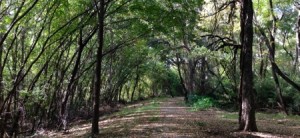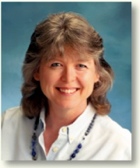It’s a tough thing to talk about instructional design (not to mention performance consulting) during a noisy cocktail party, especially with people who’ve never heard of either one.
Trees. Forest. Ecosystem. Scratch the surface and describing what we do becomes complex pretty quickly.
 Photo © Jeanne Farrington
Photo © Jeanne Farrington
I’m at a conference with people from many different fields. When someone asks what I do, and I answer—I generally get a blank stare.
To make it easier, I tried saying that I work in training. People nod. They have an idea. But, that brief statement glosses over instructional design and completely leaves out performance technology.
Obviously, I’m out of practice. One guy asked me for an example. I said, “Well, last week I reorganized some great content. My client has a Ph.D., and he wrote some training material for people who have high school diplomas. I simplified the language and restructured it so that it would make learning easier and more effective for the learners.” (Kind of long-winded.)
His response, “So, you take awesome content and turn it into something that helps people to learn.” I said, “Yes, that’s pretty much it.” (Much better description than mine, but it only works for some examples.)
I remember when I first started learning how to do instructional design. It covers a lot of ground and is complex. And then, along came performance consulting. Multiply the descriptive difficulties by two, or maybe five. Or ten.
So it’s no wonder that it’s tough to convey the gist of what we do in just a few words.
“Instructional designers use a systematic process for creating efficient, effective instruction.“ (Eyes glaze over.)
“Performance consultants use a systematic and systemic process to analyze and solve workplace opportunities and challenges.” (“What?”)
In a social setting, it seems the preferred statements about occupations are very short.
“I’m a publisher.”
“I teach soft skills.”
“I’m a musician.”
“I’m a pastor.”
“I’m a mortgage broker.”
You get about one short sentence & that’s it. I’ve enjoyed experimenting with different approaches the past couple of days. Some worked better than others.
If you’re an instructional designer or performance consultant, imagine a big gathering party with 175 strangers meeting one another. The room is loud with enthusiastic greetings. You get one sentence, maybe. How would you describe what you do to people who are hearing about it for the first time?
Little Update. After I got home, I listened to a podcast by Grammar Girl (Mignon Fogarty), who described what it’s like to go to a party and say that she’s a linguist. It’s delightful.
